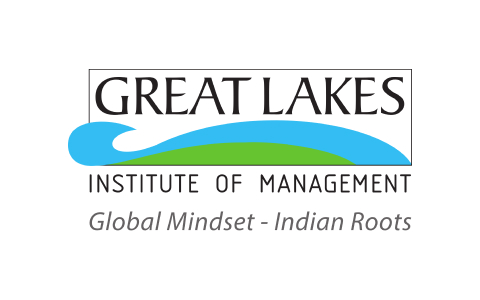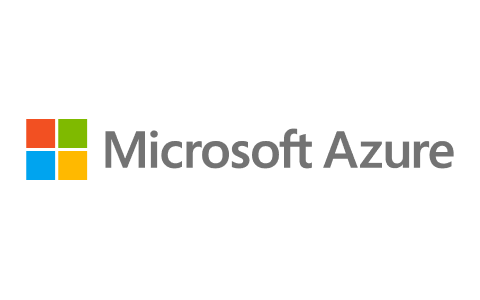Digital Marketing Tools Basics
Unlock online success with our Free Digital Marketing Tools Course! Gain expertise in SEO, analytics, and more. Earn a certificate and master the tools that power digital marketing. Enrol now!

Ratings
Level
Learning hours

Learners
Skills you’ll Learn
About this course
Digital Marketing Tool Basics is a free online course designed to equip participants with essential skills in the dynamic realm of digital marketing. This comprehensive program covers fundamental concepts such as the Introduction to Digital Marketing and provides insights into a diverse array of tools. Participants will gain proficiency in Website and SEO Tools for optimizing online presence, explore Content Creation and Management Tools for compelling messaging, and delve into Social Media Management Tools for effective engagement.
The course also delves into Email Marketing Tools for targeted communication and CRM and Analytics Tools for data-driven decision-making. Enroll now to harness the power of these digital marketing tools and elevate your online presence.
Course Outline
Gain a foundational understanding of digital marketing principles, strategies, and concepts, setting the stage for effective tool utilization.
Explore the diverse landscape of digital marketing tools, learning how they contribute to successful online campaigns.
Discover tools that empower website creation, optimization, and search engine visibility enhancement for improved online presence.
Dive into tools designed to streamline content creation, organization, and distribution, vital for engaging and retaining your audience.
Master the tools necessary for efficient social media management, enabling you to engage with your target audience across various platforms.
What our learners enjoyed the most
Skill & tools
61% of learners found all the desired skills & tools
Ratings & Reviews of this Course
Frequently Asked Questions
Will I receive a certificate upon completing this free course?
What are the prerequisites required to enrol in this Free Digital Marketing Tools Basics course?
You do not need any prior knowledge to enrol in this Digital Marketing Tools Basics course.
How long does it take to complete this Free Digital Marketing Tools Basics course?
It is a 1.0 hour long course, but it is self-paced. Once you enrol, you can take your own time to complete the course.
Will I have lifetime access to the free course?
Yes, once you enrol in the course, you will have lifetime access to any of the Great Learning Academy’s free courses. You can log in and learn whenever you want to.
Will I get a certificate after completing this Free Digital Marketing Tools Basics course?
Yes, you will get a certificate of completion after completing all the modules and cracking the assessment.
Popular Upskilling Programs
Other Digital Marketing tutorials for you
Digital Marketing Tools Basics
Digital marketing has become an indispensable component of modern business strategies, and its effectiveness often hinges on the efficient use of various tools designed to streamline processes, analyze data, and optimize campaigns. In the dynamic and ever-evolving landscape of digital marketing, these tools play a crucial role in helping businesses connect with their target audience, enhance brand visibility, and drive measurable results. Here's a look at some key digital marketing tools that have become essential for businesses seeking online success.
Google Analytics:
Google Analytics is a powerful web analytics tool that provides in-depth insights into website traffic, user behavior, and engagement. It helps marketers understand how users interact with their websites, enabling data-driven decisions. With features such as goal tracking, conversion analysis, and user flow visualization, Google Analytics empowers marketers to refine their strategies for better performance.
SEO Tools (e.g., SEMrush, Ahrefs):
Search Engine Optimization (SEO) is critical for online visibility. Tools like SEMrush and Ahrefs assist marketers in keyword research, competitor analysis, backlink tracking, and site audit. These tools help businesses optimize their websites to rank higher on search engine results pages, driving organic traffic and improving overall online presence.
Email Marketing Platforms (e.g., Mailchimp, Constant Contact):
Email marketing remains a powerful tool for customer engagement. Platforms like Mailchimp and Constant Contact facilitate the creation and automation of email campaigns. They provide features for segmenting audiences, personalizing content, and tracking campaign performance, contributing to the effectiveness of email marketing strategies.
Social Media Management Tools (e.g., Hootsuite, Buffer):
Social media plays a central role in digital marketing. Social media management tools like Hootsuite and Buffer streamline the process of scheduling posts, managing multiple social media accounts, and analyzing performance metrics. These tools help maintain a consistent online presence and engage with the audience across various platforms.
Content Marketing Tools (e.g., WordPress, HubSpot):
Content marketing is about creating and distributing valuable content. Content management systems like WordPress and comprehensive platforms like HubSpot assist in content creation, publication, and distribution. These tools often include features for blogging, SEO optimization, and analytics to measure content performance.
Pay-Per-Click (PPC) Advertising Tools (e.g., Google Ads, Facebook Ads Manager):
PPC advertising is a quick way to drive targeted traffic to a website. Google Ads and Facebook Ads Manager allow marketers to create and manage paid advertising campaigns. These platforms offer robust targeting options, ad performance tracking, and analytics to optimize ad spend for better returns on investment.
Customer Relationship Management (CRM) Systems (e.g., Salesforce, HubSpot CRM):
CRM systems are crucial for managing and nurturing customer relationships. Salesforce and HubSpot CRM provide tools for tracking customer interactions, managing leads, and automating sales processes. Integrating CRM with digital marketing efforts helps in creating personalized and targeted campaigns.
Marketing Automation Platforms (e.g., Marketo, Pardot):
Marketing automation tools streamline repetitive tasks and nurture leads through automated workflows. Marketo and Pardot offer features for lead scoring, email automation, and campaign management. Automation improves efficiency, allowing marketers to focus on strategy and creative aspects of their campaigns.
In conclusion, the digital marketing landscape is vast and complex, but the right set of tools can significantly enhance a marketer's ability to reach and engage their target audience. From analytics to automation, each tool serves a specific purpose in the overarching goal of creating effective and results-driven digital marketing campaigns. As technology continues to advance, staying updated on the latest tools and trends becomes imperative for businesses aiming to thrive in the digital realm.


































